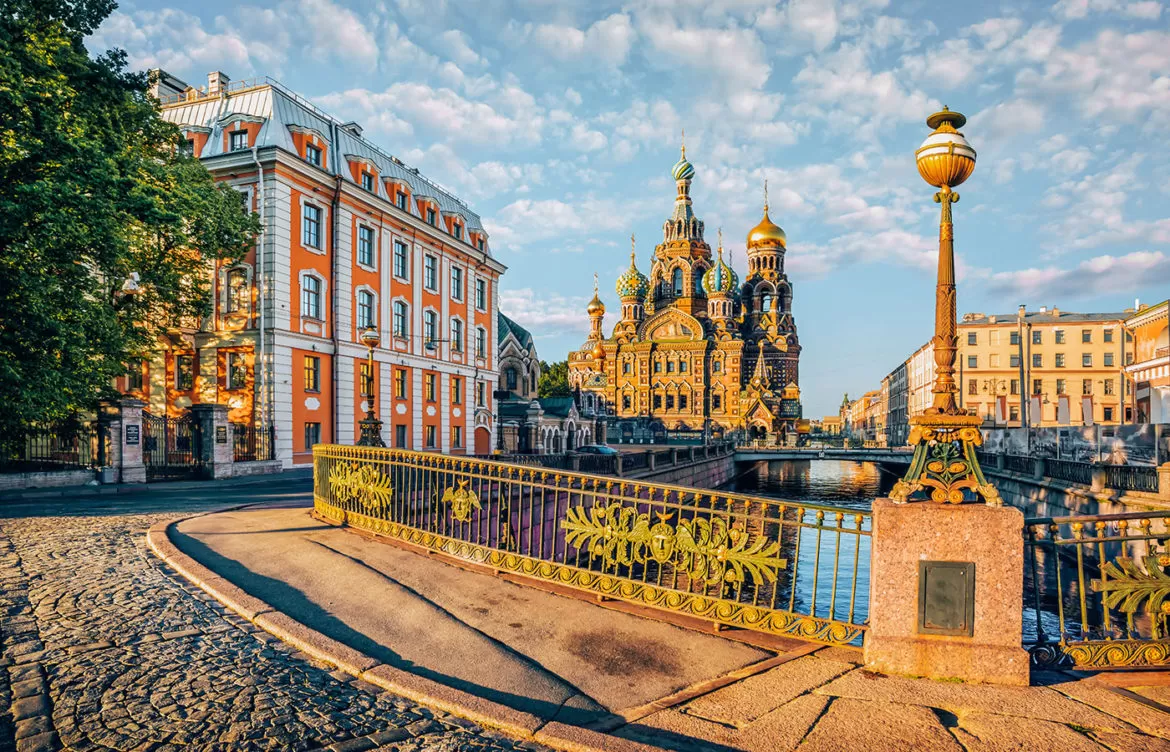Visiting Russia or just want to learn basic Russian words? Then you need to learn these essential Russian phrases for travel. Plus, 6 travel tips and surprising local customs you should know.
Many believe Russian to be one of the hardest foreign languages to master and feel apprehensive about learning it. Like any foreign language, Russian is not without its difficulties. However, it is also a beautiful language full of hilarious Russian idioms making any challenges you face quite fun to overcome.
You don’t have to learn the entire Russian language to be travel fluent. Just being able to understand the most useful Russian phrases and expressions will make all the difference when it comes to comprehension. In this guide, we will take a look at the Russian language, its history, its alphabet, and some of its features that can present challenges for the learners or that every Russian learner (and traveller) should know about.
If you’re a more serious learner, then make sure you join Uncovered Russian which will take even complete beginners to a solid intermediate level al by using the power of Story Learning. Get your FREE trial of Uncovered Russian here.
Let’s take a closer look at the Russian language. Here’s what we’ll cover:
Table of Contents
- How Many People Speak Russian?
- Where is Russian spoken?
- A Quick History of Russian
- Russian Alphabet
- Russian pronunciation
- Russian Grammar
- 6 Top Travel tips and Russian Culture
- Russian words in the English language
- 5 Interesting facts about the Russian language
- Russian Phrases for Travel
- Essential Russian Phrases for Travel [Printable Infographic]
How many people speak Russian?
With over 250 million speakers all over the world, Russian is the world’s eighth most widespread language. It is the official language of Russia, with a population of nearly 150 million people, as well as Belarus, Kyrgyzstan, and Kazakhstan.
Where is Russian spoken?
Russian is also rather wide-spread in the former Soviet republics, which include Azerbaijan, Estonia, Georgia, Latvia, Lithuania, Moldova, Tajikistan, Turkmenistan, Ukraine, and Uzbekistan.
There are considerable communities of Russian-speakers in other countries of the world, including Cyprus, Finland, Turkey, Hungary, Mongolia, Poland, Canada, Australia, China, the United States, Argentina, and Israel. In the USA, there are over a million Russian speakers, with more than 100,000 in California alone.
A quick history of Russian
Russian is an Indo-European language. This means that if we go back in history, it has the same roots as English or French – but we will have to go way back for that, as the ancient Proto-Indo-European is believed to have been spoken as a single language from 4500 BCE to 2500 BCE.
At around 1500–1000 BCE, the Proto-Slavic language emerged, the language spoken by the Slavic tribes that began to settle in Eastern Europe. This language eventually developed into the Slavic branch of the Indo-European language family, including such languages as Russian, Czech, Polish, Bulgarian, Serbo-Croatian, and others.
As a separate language, Russian emerged in the middle ages. It was heavily influenced by Church Slavonic used by the Russian Orthodox Church at that period. Between the 15th and 17th centuries, various attempts at standardizing the Russian language were made. Eventually, standard Russian, based on the Moscow dialect, became the official language of the country in the mid-19th century.
Russian dialects are roughly divided into Northern, spoken in the northern and north-eastern parts of European Russia; Southern, spoken in the western and southern parts of European Russia; and Central or Middle, located between the two. The dialects of Siberia and the Far East can be of any of these three groups, depending on where the settlers of this or that region came from. There are also smaller local variations and dialects of Russian spoken in other countries, such as Kazakhstani or Kyrgyzstani Russian.
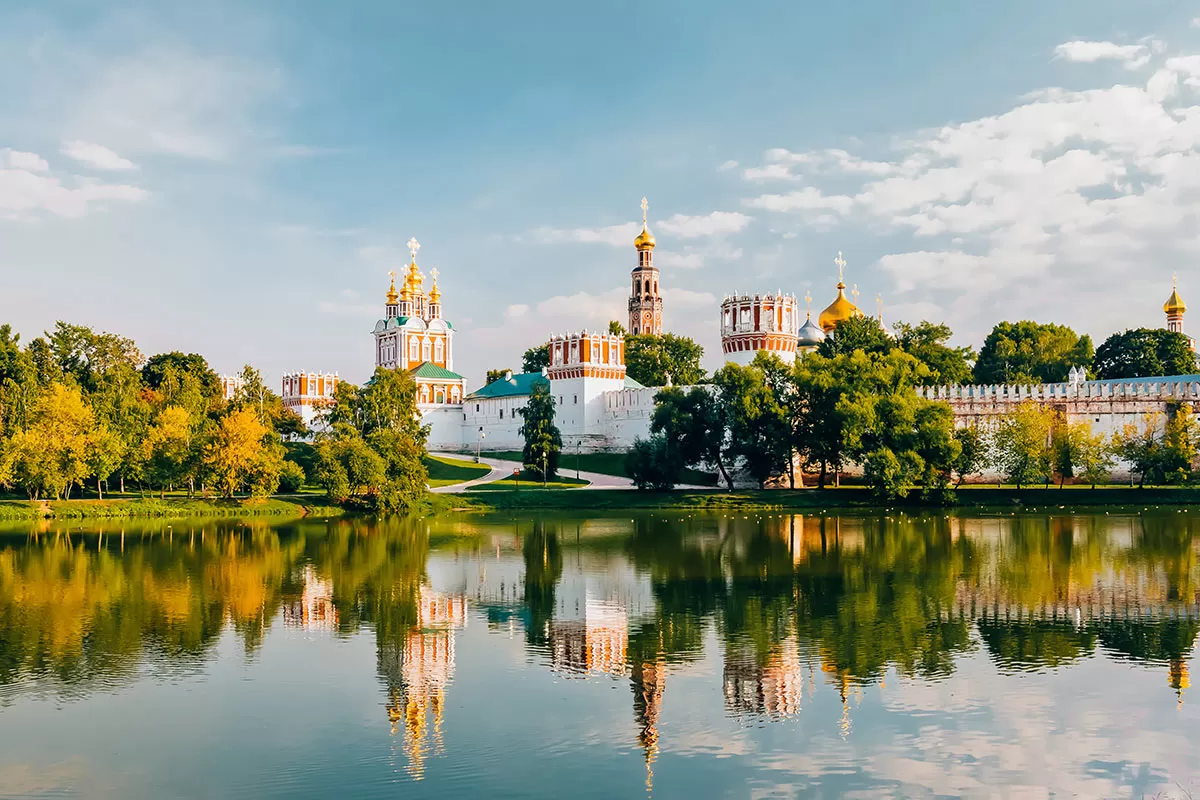
The Russian alphabet (Алфавит)
Russian is written using the Cyrillic alphabet. This alphabet was developed in the 9th century CE, based on the Greek script with the addition of several laters of the old Glagolitic alphabet. The alphabet underwent several reforms until its ‘final’ version after the reforms of Peter the Great in the 18th century.
The modern Russian alphabet has twenty consonants, ten vowels, one semi-vowel, and two modifier letters that change a preceding consonant but are not pronounced themselves.
Below is a table of the Russian alphabet including pronunciation. I’ve you’re not familiar with how to use the International Phonetic Alphabet (IPA), I’ve also included the closest equivalent transliteration.
| Russian Letter | Transliteration | IPA (International Phonetic Alphabet) |
|---|---|---|
| А | a | a |
| Б | b | b |
| В | V | v |
| Г | G | ɡ |
| Д | D | d |
| Е | E | je |
| Ё | YO | jo |
| Ж | ZH | ʐ |
| З | Z | z |
| И | I | i |
| Й | J | j |
| К | K | k |
| Л | L | l |
| М | M | m |
| Н | N | n |
| О | O | o |
| П | P | p |
| Р | R | r |
| С | S | s |
| Т | T | t |
| У | U | u |
| Ф | F | f |
| Х | H | x |
| Ц | TS | ts |
| Ч | CH | tɕ |
| Ш | SH | ʂ |
| Щ | SHCH | ɕː |
| Ъ | – | – |
| Ы | Y | ɨ |
| Ь | – | ʲ |
| Э | E | e |
| Ю | YU | ju |
| Я | YA | ja |
The Russian alphabet can seem confusing at first. There are letters that look like the letters in English and have relatively similar sounds (а, к, м), but there are also letters that look familiar but are pronounced differently (н, р, х) and letters that look completely unfamiliar and weird (ж, ф, ы).
One of the best ways to learn the Russian alphabet is to ‘divide and conquer’ the letters:
- Start with the friendliest ones, that look and sound similar to the letters of the English alphabet: A, E, K, M, O, and T.
- Move on to letters that look different but represent familiar sounds: Б, Г, Д, Ш, З, Ф, П, Л, Э, Ч, И, and Ю.
- Then you can tackle the letters that represent sounds that don’t exist in the English language (Ё, Ж, Й, Щ, Ц, Я, Ь, Ъ,
- and Ы) and the tricky ones that look familiar but sound differently (B, H, P, C, У, and X).
My tip? Don’t rush this process. Take your time to practice these letters sufficiently. The alphabet is one of the basics of any language, and you wouldn’t want to go back to revise it when you start learning more complex things.
Russian pronunciation
Russian pronunciation is fairly phonetic: one letter usually corresponds to one sound and words are pronounced just as they are written. See if you can read these Russian words: том, кот, мама, ком. You can probably pronounce them well enough even without any knowledge of Russian.
But of course, things are never that simple and there are a few rules you need to remember to pronounce and read Russian correctly. Here are a few of them:
- The Russian /r/ is rolled. Try saying words like ‘bottle’ or ‘butter’ really fast to achieve a similar sound. You can also check out YouTube tutorials on how to roll your /r/.
- The unstressed O is pronounced as /a/ – корова (cow) is pronounced /ka-rO-va/.
- The vowels Е, Ё, Ю, and Я usually palatalize the previous consonant.
- A consonant at the end of the word is always unvoiced. That’s why the word ‘код’ (code) is pronounced /кот/, the same way as the word ‘кот’ (cat).
- The letter Ё is always stressed.
- The soft sign Ь is not pronounced, it indicates that the previous consonant is palatalized: кровь (blood) – /krov’/.
- The hard sign Ъ acts like a ‘silent back vowel’ and separates the consonant from the following soft vowel, and indicates that this vowel is iotized: объект (object) – /ob’’yekt/.
These are just a few of the basic rules to get you started. Of course, you will need to study Russian pronunciation in more detail to speak the language correctly.
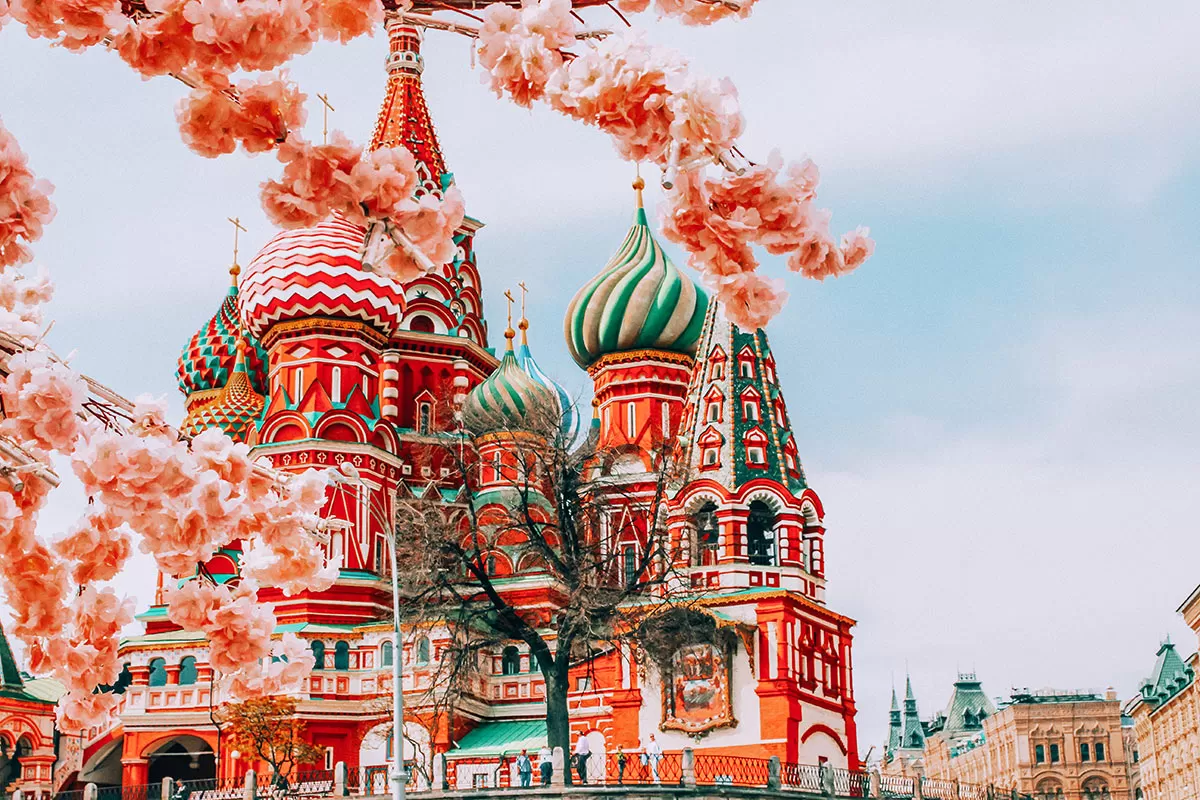
Russian grammar
Russian is a heavily inflected language, meaning, where an English noun or verb has just two or three forms, Russian words can have dozens of forms to correspond to different cases, tenses, and other grammatical structures.
No article would be enough to describe in detail the grammar of the Russian language – you’ll need at least one hefty textbook for that, if not more. We will only touch upon some of the key features of Russian grammar that are important to learn even if you are brushing up on your Russian for a short trip.
Gender
Nouns in Russian have the category of gender: each noun is masculine, feminine, or neuter. The grammatical gender has nothing to do with the physical characteristics of an object and can be hard to remember. There are just a few words describing men and women, family members, and professions whose grammatical gender (masculine or feminine) corresponds to the actual gender of the person they describe. Example: учитель (masc., a (male) teacher), учительница (fem., a (female) teacher). The gender of nouns is important to remember because it affects other parts of speech: adjectives, pronouns, and even verbs in some of the forms.
Politeness: Using the formal and informal ‘you’
The English language has just one form of ‘you’ that is used for the second person both singular and plural, in both formal and informal situations. In Russian, 2nd person singular is ‘ты’ and 2nd person plural is ‘вы’. The capitalized ‘вы’ is also used to address one person in a formal situation. In this case, plural verbs are also used. Example: Ты хорошо выглядишь – You look nice (2nd person singular, informal); Вы хорошо выглядите – You look nice (2nd person, plural or 2nd person singular, formal). When meeting someone for the first time, the polite form is preferable until you get to know them better or you mutually agree to use the more informal ‘ты’.
Cases
There are six cases in the Russian language, and a Russian noun thus has 12 different forms (6 singular and 6 plural). Adjectives and pronouns have to agree with the nouns they describe in number, gender, and case, so they have quite a few different forms as well. Cases may be one of the most ‘annoying’ parts of Russian grammar, with all the different inflections you have to remember. However, it is mostly a matter of repetition and regular practice – and with a bit of effort and patience, you’ll be the master of Russian cases.
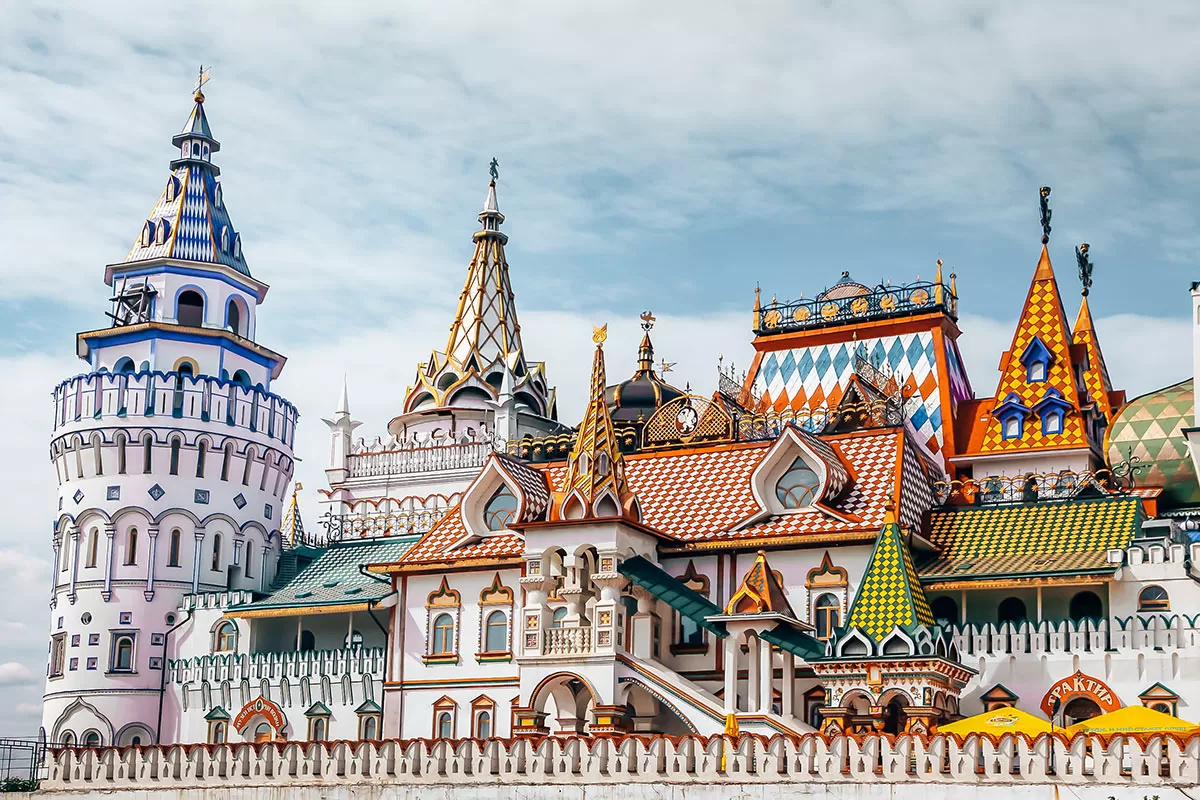
6 Top Travel tips and Russian Culture
When travelling to a foreign country, it is important to know a little about its culture and traditions. In Russia, people are generally quite welcoming to foreigners, and there aren’t many strict cultural rules breaking which can lead to severe misunderstanding.
The most important rule is to be polite, attentive to others, and open-minded. However, following some of the common customs and traditions will help you avoid misunderstandings and generally have a great time in Russian. Here are a few of them:
- Bring a gift. When you are invited to someone’s home, especially for the first time or for some holiday, it is a good idea not to come empty-handed: bring some flowers to the hostess, some dessert or a bottle of wine, a souvenir from your country. And don’t forget to take off your shoes when you enter the house or apartment! You can ask your host for some ‘tapochki’ (slippers) instead.
- Don’t smile too much. At a first glance, Russian people can seem rather gloomy and unsmiling. A smile is quite personal in Russia, so don’t expect people on public transport or in the streets to smile back at you.
- Respect the elderly. When using public transport, it is a common sign of respect to give up your seat to elderly people.
- Follow the dress-code. It is customary to dress more formally when going to a theatre or to a restaurant. You will often still be let in wearing jeans and a T-shirt, but it is quite likely that you will stand out in the crowd of smartly-dressed Russians.
- Tip the waiters. It is common to tip around 10% of the bill.
- Be formal to be on the safe side. We’ve already discussed formality in the grammar section – if you are not sure if it’s okay to use the informal ‘ты’ and corresponding verb forms, go with the formal forms. This way you’ll never seem disrespectful, and if it’s okay to use ‘ты’, people will often tell you.
Russian words in the English language
There are quite a few words borrowed from English in the Russian language (банк – bank, компьютер – computer, креатив – creativity, менеджер – manager, хот-дог – hot-dog, бар – bar, доктор – doctor, and many others). But did you know that there are words of Russian origin in the English language as well?
Many of these words are connected with Russian cuisine, culture, and history: blini, pirozhki, vodka; glasnost, kadet, okrug, perestroika, soviet; raskol, shaman; kalashnikov, marshrutka.
There are also words related to space exploration (cosmonaut, cosmodrome, sputnik) and the names of some animals (beluga, mammoth, sable).
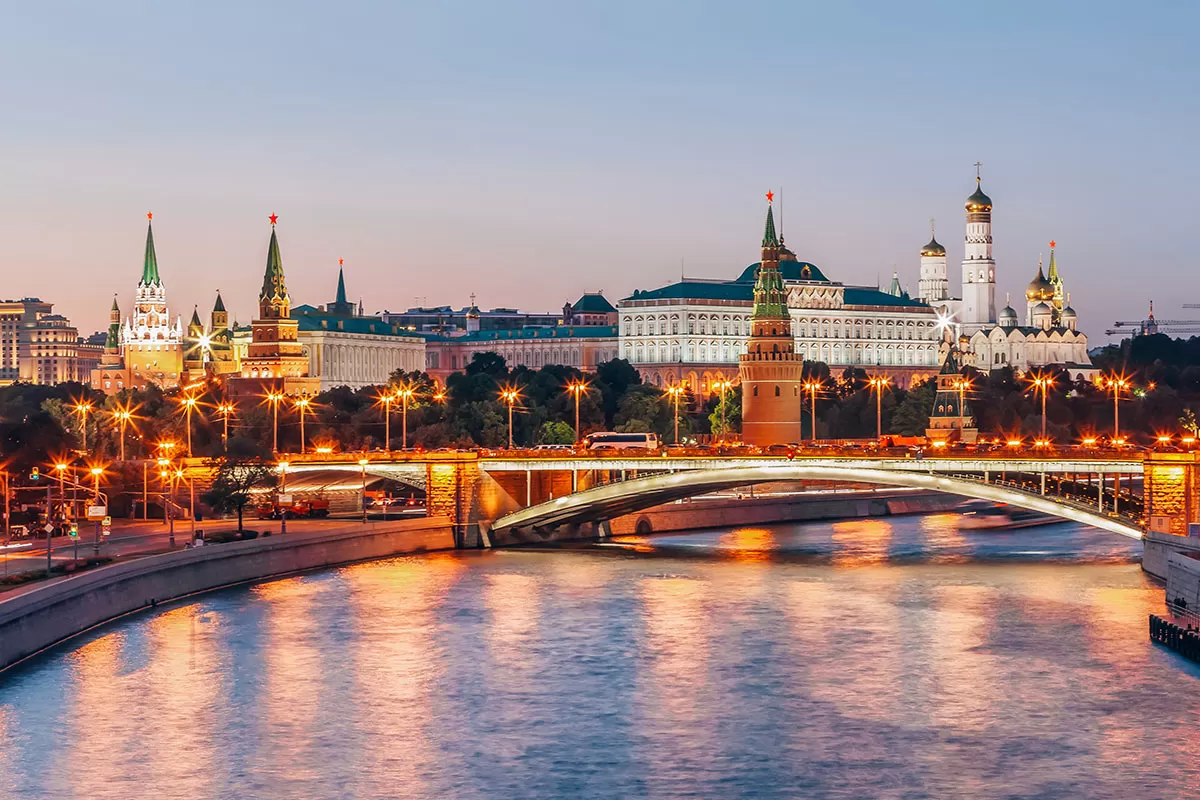
5 Interesting facts about the Russian language
There are a lot of interesting things about the Russian language – some we have already mentioned above and you will probably learn many more when you start learning the language. Here are a few facts about Russian to keep you interested:
- Russian is the language of space. English and Russian are the two languages used on the International Space Stations, and astronauts have to learn Russian as part of their training.
- No native words in Russian begin with the letter A – all such words are borrowed from other languages.
- People in Russia have patronymics – it is a kind of a middle name derived from the name of your father, with different endings for men (-ovich) and women (-ovna). Aleksandrovich would be the patronymic of a man whose father is called Aleksandr (Alexander), and the patronymic of a woman would be Alexandrovna.
- Russian is one of the richest literary languages. Russia has a great literary tradition, and some of the world’s greatest works of literature are in Russian.
- The verb ‘to be’ (быть) in Russian is only used in the past and future forms.
The Russian language is not scary at all. It may present some difficulties – all foreign languages do. But it is also beautiful and interesting and represents a great culture.
Basic Russian words and Essential Russian Phrases for Travel
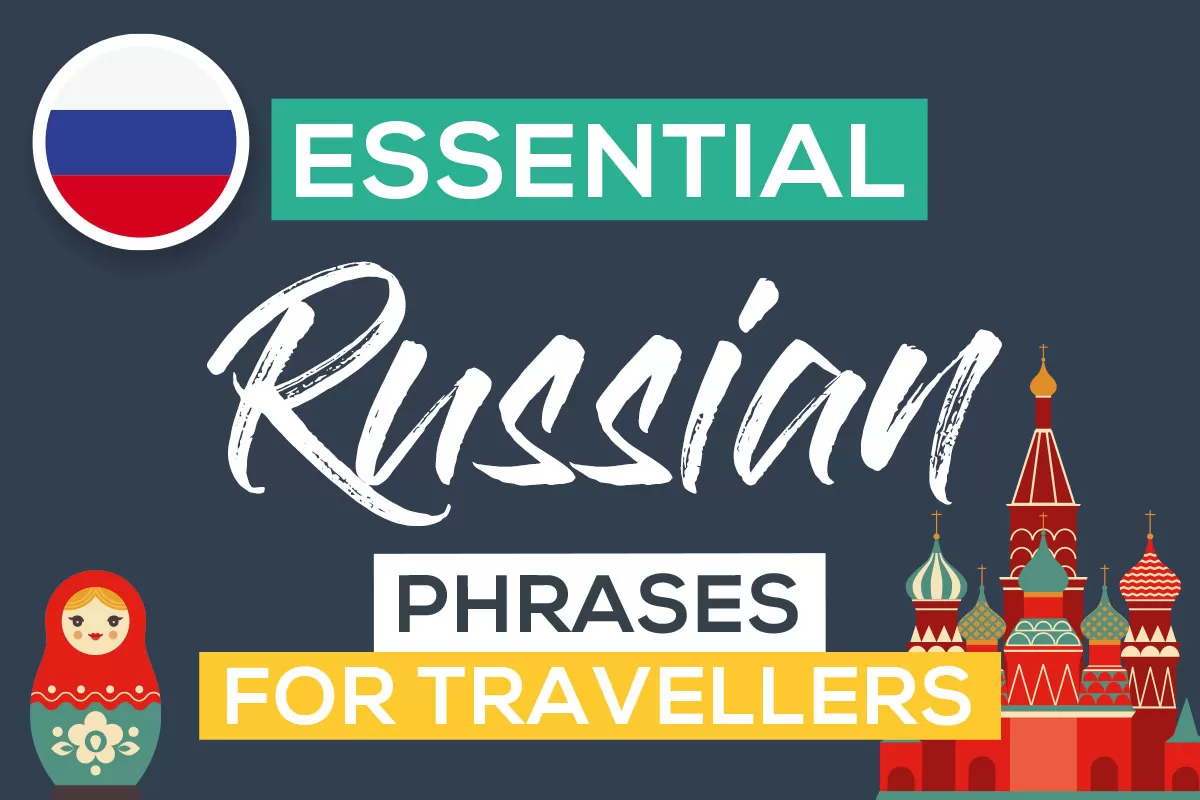
Common Greetings (Общие приветствия)
| English | Russian | Transliteration |
|---|---|---|
| Hello (formal/informal) | Здравствуй or привет (informal, singular); здравствуйте (formal singular or plural) | Zdravstvuj, privet; Zdravstvujte |
| Good morning | Доброе утро | Dobroe utro |
| Good afternoon | Добрый день | Dobryj den’ |
| Good evening | Добрый вечер | Dobryj vecher |
| Good night | Доброй ночи | Dobroj nochi |
| Goodbye | До свидания | Do svidaniya |
| See you later | Увидимся | Uvidimsya |
| How are you? (formal) | Как ваши дела? | Kak vashi dela? |
| How are you? (informal) | Как твои дела? | Kak tvoi dela? |
| Well / Very well | Хорошо / очень хорошо | Horosho/ ochen’ horosho |
| So-so | Так себе | Tak sebe |
| Not bad | Неплохо | Neploho |
| I’m not well | Мне нехорошо, я не в порядке | Mne nekhorosho, ya ne v poryadke |
| Good, thank you, and you? (formal) | Хорошо, спасибо, а ваши? | Horosho, spasibo, a vashi? |
| Good, thank you, and you? (informal) | Хорошо, спасибо, а твои? | Horosho, spasibo, a tvoi? |
| What is your name? (formal) | Как вас зовут? | Kak vas zovut? |
| What is your name? (informal) | Как тебя зовут? | Kak tebya zovut? |
| My name is… | Меня зовут … | Menya zovut … |
| Where are you from? (formal) | Откуда вы? | Otkuda vy? |
| Where are you from? (informal) | Откуда ты? | Otkuda ty? |
| I’m from [Insert name of city] | Я из … | YA iz … |
| I’m American (male / female) I’m English (male / female) I’m Australian (male / female) I’m Canadian (male / female) | Я американец / американка Я англичанин / англичанка Я австралиец / австралийка Я канадец / канадка | YA amerikanec / amerikanka. YA anglichanin / anglichanka. YA avstraliec / avstralijka. YA kanadec / kanadka |
| It’s nice to meet you | Приятно познакомиться | Priyatno poznakomit’sya |
How to be Polite (Как быть вежливым )
| English | Russian | Transliteration |
|---|---|---|
| Please (formal) | Пожалуйста | Pozhalujsta |
| Please (informal) | Пожалуйста | Pozhalujsta |
| Thank you | Спасибо | Spasibo |
| Thank you very much | Большое спасибо | Bol’shoe spasibo |
| You’re welcome (formal/informal) | Пожалуйста; не за что | Pozhalujsta; ne za chto |
| Yes | Да | Da |
| No | Нет | Net |
| That’s fine / ok | Все в порядке | Vse v poryadke |
| Miss / young lady | Девушка | Devushka |
| Mrs / madam / ma’am | Женщина | ZHenshchina |
| Mr. / Sir | Мужчина | Muzhchina |
| Excuse me (to get attention) (informal) | Извините, пожалуйста | Izvinite, pozhalujsta |
| Excuse me (to get past someone ie. in a shop, on the bus) | Извините | Izvinite |
| I’m sorry (eg. apologising for bumping into someone) | Извините | Izvinite |
| I’m very sorry (used when you regret something) (m/f) | Мне очень жаль | Mne ochen’ zhal’ |
| Excuse me, Miss / young lady | Извините, девушка | Izvinite, devushka |
| Excuse me, madam/ma’am | Извините, женщина | Izvinite, zhenshchina |
| Excuse me, Sir | Извините, мужчина | Izvinite, muzhchina |
| I don’t understand | Я не понимаю | YA ne ponimayu |
| Do you speak English? (formal) | Вы говорите по-английски? | Vy govorite po-anglijski? |
| Do you speak English? (informal) | Ты говоришь по-английски? | Ty govorish’ po-anglijski? |
| I don’t speak Russian | Я не говорю по-русски? | YA ne govoryu po-russki? |
| I only speak a little bit of Russian | Я немного говорю по-русски | YA nemnogo govoryu po-russki |
| Can you please repeat that slowly? (formal) | Вы не могли бы повторить это помедленнее? | Vy ne mogli by povtorit’ eto pomedlennee? |
| Can you please repeat that slowly? (informal) | Ты не мог бы повторить это помедленнее? (to a male) Ты не могла бы повторить это помедленнее? (to a female) | Ty ne mog by povtorit’ eto pomedlennee? (to a male) Ty ne mogla by povtorit’ eto pomedlennee? (to a female) |
| Maybe | Может быть | Mozhet byt’ |
| I don’t know | Я не знаю | YA ne znayu |
| I don’t think so | Я так не думаю | YA tak ne dumayu |
| Certainly! / Of course! | Конечно! | Konechno! |
| Cheers! (toast) | За здоровье! | Za zdorov’e! |
Asking Questions (Вопросы)
| English | Russian | Transliteration |
|---|---|---|
| Where is …? (person / place, location) | Где находится …? | Gde nahoditsya …? |
| Where are…? (people / places, locations) | Где находятся …? | Gde nahodyatsya …? |
| Where? | Где? | Gde? |
| How? | Как? | Kak? |
| How much? | Сколько? | Skol’ko? |
| Who? | Кто? | Kto? |
| When? | Когда? | Kogda? |
| Why? | Почему? | Pochemu? |
| What? | Что? | CHto? |
| Which? | Который? | Kotoryj? |
| How much does this cost? | Сколько это стоит? | Skol’ko eto stoit? |
| Where is the toilet, please? | Где туалет? | Gde tualet? |
| May I have…? | Можно мне … ? | Mozhno mne … ? |
| I would like… | Я бы хотел … (said by a man); Я бы хотела … (said by a woman) | YA by hotel … (masc.); YA by hotela … (fem.) |
| It’s… | Это … | Eto … |
| Could you help me, please? | Вы не могли бы мне помочь, пожалуйста? | Vy ne mogli by mne pomoch’, pozhalujsta? |
| Where is a taxi stand? | Где стоянка такси? | Gde stoyanka taksi? |
| Where can I find a taxi? | Где я могу найти такси? | Gde ya mogu najti taksi? |
| Is the flight delayed? | Рейс задерживается? | Rejs zaderzhivaetsya? |
| Is the flight cancelled? | Рейс отменен? | Rejs otmenen? |
| Is this seat taken? | Это место занято? | Eto mesto zanyato? |
| I’ll be back immediately | Я сейчас вернусь | YA sejchas vernus’ |
| Please drive me to this address | Пожалуйста, отвезите меня по этому адресу | Pozhalujsta, otvezite menya po etomu adresu |
| Can I have a receipt? | Дайте мне, пожалуйста, чек. | Dajte mne, pozhalujsta, chek. |
Eating Out & Ordering Food (Поход в ресторан и заказ еды)
| English | Russian | Transliteration |
|---|---|---|
| Restaurant | Ресторан | Restoran |
| Can you recommend a good restaurant? (formal) | Вы не могли бы порекомендовать хороший ресторан? | Vy ne mogli by porekomendovat’ horoshij restoran? |
| What would you like to order? (waiter asks the table) (formal) | Что вы хотели бы заказать? | CHto vy hoteli by zakazat’? |
| How many are you? (waiter asks as you arrive) | Сколько вас будет? | Skol’ko vas budet? |
| Breakfast | Завтрак | Zavtrak |
| Lunch | Обед | Obed |
| Dinner | Ужин | Uzhin |
| Aperitif / Starter | Аперитив | Aperitiv |
| Entree / introductory course | Закуска | Zakuska |
| Main course | Основное блюдо | Osnovnoe blyudo |
| Salad | Салат | Salat |
| Dessert | Десерт | Desert |
| Coffee | Кофе | Kofe |
| What would you like to drink? | Что вы хотели бы выпить? | CHto vy hoteli by vypit’? |
| I would like another one, please. (i.e: the same thing again) | Я хотел бы еще один (masc.) / одну (fem.) / одно (neut.), пожалуйста. | YA hotel by eshche odin/odnu/odno, pozhalujsta. |
| I like my steak rare / medium / well-done | Мне нравится стейк слабой прожарки; Мне нравится стейк средней прожарки; Мне нравится стейк полной прожарки | Mne nravitsya stejk slaboj prozharki; Mne nravitsya stejk srednej prozharki; Mne nravitsya stejk polnoj prozharki |
| I would like…(used when ordering food) | Я бы хотел … (said by a man); Я бы хотела … (said by a woman) | YA by hotel … (masc.); YA by hotela … (fem.) |
| The menu, please | Меню, пожалуйста. | Menyu, pozhalujsta. |
| Two beers, please | Два пива, пожалуйста. | Dva piva, pozhalujsta. |
| A bottle of wine, please | Бутылку вина, пожалуйста. | Butylku vina, pozhalujsta. |
| Red wine | Красное вино | Krasnoe vino |
| White wine | Белое вино | Beloe vino |
| A bottle of still water | Бутылка негазированной воды | Butylka negazirovannoj vody |
| A bottle of sparkling water | Бутылка газированной воды | Butylka gazirovannoj vody |
| What do you recommend? (formal) | Что бы вы порекомендовали? | CHto by vy porekomendovali? |
| What do you recommend? (informal) | Что бы ты порекомендовал? (to a male); Что бы ты порекомендовала? (to a female) | CHto by ty porekomendoval? (to a male); CHto by ty porekomendovala? (to a female) |
| Is the sauce spicy? | Этот соус острый? | Etot sous ostryj? |
| I’m allergic to… (m/f) | У меня аллергия на … | U menya allergiya na … |
| I’m a vegetarian (male) | Я вегитарианец | YA vegitarianec |
| I’m a vegetarian (female) | Я вегитарианка | YA vegitarianka |
| The bill, please | Счёт, пожалуйста | Schyot, pozhalujsta |
| Enjoy your food! | Приятного аппетита | Priyatnogo appetita |
| It was delicious! | Это очень вкусно! | Eto ochen’ vkusno! |
Food & Ingredients (Продукты)
| English | Russian | Transliteration |
|---|---|---|
| Tomato | Помидор | Pomidor |
| Garlic | Чеснок | CHesnok |
| Salt | Соль | Sol’ |
| Pepper | Перец | Perec |
| Salad | Салат | Salat |
| Chocolate | Шоколад | SHokolad |
| Bread | Хлеб | Hleb |
| Chicken | Курица | Kurica |
| Steak | Стейк | Stejk |
| Veal | Телятина | Telyatina |
| Meat | Мясо | Myaso |
| Fish | Рыба | Ryba |
| Artichoke | Артишок | Artishok |
| Pumpkin | Тыква | Tykva |
| Leek | Лук-порей | Luk-porej |
| Peas | Горох | Goroh |
| Apple | Яблоко | YAbloko |
| Strawberry | Клубника | Klubnika |
| Orange | Апельсин | Apel’sin |
| Peach | Персик | Persik |
| Wine | Вино | Vino |
| Water | Вода | Voda |
| Juice | Сок | Sok |
| Cheese | Сыр | Syr |
| Lemon | Лимон | Limon |
| Lime | Лайм | Lajm |
| Egg | Яйцо | YAjco |
| Butter | Сливочное масло | Slivochnoe maslo |
| Sugar | Сахар | Sahar |
Getting Around (Транспорт и перемещение)
| English | Russian | Transliteration |
|---|---|---|
| I’m lost (male) | Я заблудился | YA zabludilsya |
| I’m lost (female) | Я заблудилась | YA zabludilas’ |
| I would like to go to… | Я хотел / хотела бы добраться до … | YA hotel / hotela by dobrat’sya do … |
| How do I get to… | Как добраться до … ? | Kak dobrat’sya do … ? |
| Where is…? Where are…? | Где находится … ?; Где находятся …? | Gde nahoditsya … ?; Gde nahodyatsya …? |
| the bathroom | туалет | tualet |
| the train station | вокзал | vokzal |
| the shops | магазины | magaziny |
| the restaurant | ресторан | restoran |
| the museum | музей | muzej |
| the post office | почта | pochta |
| the market | рынок | rynok |
| the pharmacy | аптека | apteka |
| the hospital | госпиталь | gospital’ |
| the bus stop | автобусная остановка | avtobusnaya ostanovka |
| the airport | аэропорт | aeroport |
| the information office | справочное бюро | spravochnoe byuro |
| the theatre | театр | teatr |
| the park | парк | park |
| the city/town centre | центр города | centr goroda |
| the entrance | вход | vhod |
| the exit | выход | vyhod |
| the timetable | расписание | raspisanie |
| the departure gate | выход на посадку | vyhod na posadku |
| What time does it arrive there? | Во сколько он прибывает сюда? | Vo skol’ko on pribyvaet syuda? |
| How long does it take to get there? | Сколько занимает дорога до туда? | Skol’ko zanimaet doroga do tuda? |
| How much is the fare? | Сколько стоит проезд? | Skol’ko stoit proezd? |
| It costs… | Проезд стоит … | Proezd stoit … |
| the train | поезд | poezd |
| the flight | рейс | rejs |
| the baggage/luggage | багаж | bagazh |
| I need a taxi | Мне нужно такси | Mne nuzhno taksi |
| Please stop here (to a taxi driver) | Пожалуйста, остановитесь сдесь | Pozhalujsta, ostanovites’ sdes’ |
Directions (Указания)
| English | Russian | Transliteration |
|---|---|---|
| Turn… | Поверните… | Povernite… |
| Left | Налево | Nalevo |
| Right | Направо | Napravo |
| Straight ahead | Прямо | Pryamo |
| Towards… | По направлению к … | Po napravleniyu k … |
| It’s / It is… | … находится … | … nahoditsya … |
| It’s close by | Это близко | Eto blizko |
| Opposite | Напротив | Naprotiv |
| Behind | Позади | Pozadi |
| Under | Под | Pod |
| In front of | Напротив | Naprotiv |
| Past | Мимо | Mimo |
Sightseeing (Достопримечательности)
| English | Russian | Transliteration |
|---|---|---|
| I would like to buy | Я хотел бы купить | YA hotel by kupit’ |
| a ticket | билет | bilet |
| two tickets | два билета | dva bileta |
| two adult (fares) | два взрослых билета | dva vzroslyh bileta |
| one child (fare) | один детский билет | odin detskij bilet |
| one student (fare) | один студенческий билет | odin studencheskij bilet |
| one senior (fare) | один билет для пенсионеров | odin bilet dlya pensionerov |
Numbers (Числа)
| English | Russian | Transliteration |
|---|---|---|
| 0 | ноль | nol‘ |
| 1 | один | odin |
| 2 | два | dva |
| 3 | три | tri |
| 4 | четыре | chetyre |
| 5 | пять | pyat‘ |
| 6 | шесть | shest‘ |
| 7 | семь | sem‘ |
| 8 | восемь | vosem‘ |
| 9 | девять | devyat‘ |
| 10 | десять | desyat‘ |
| 11 | одиннадцать | odinnadcat‘ |
| 12 | двенадцать | dvenadcat‘ |
| 13 | тринадцать | trinadcat‘ |
| 14 | четырнадцать | chetyrnadcat‘ |
| 15 | пятнадцать | pyatnadcat‘ |
| 16 | шестнадцать | shestnadcat‘ |
| 17 | семнадцать | semnadcat‘ |
| 18 | восемнадцать | vosemnadcat‘ |
| 19 | девятнадцать | devyatnadcat‘ |
| 20 | двадцать | dvadcat‘ |
| 30 | тридцать | tridcat‘ |
| 40 | сорок | sorok |
| 50 | пятьдесят | pyat’desyat |
| 60 | шестьдесят | shest’desyat |
| 70 | семьдесят | sem’desyat |
| 80 | восемьдесят | vosem’desyat |
| 90 | девяносто | devyanosto |
| 100 | сто | sto |
| 1000 | тысяча | tysyacha |
Telling the Time (Время)
| English | Russian | Transliteration |
|---|---|---|
| Today | Сегодня | Segodnya |
| Tomorrow | Завтра | Zavtra |
| The day after tomorrow | Послезавтра | Poslezavtra |
| Yesterday | Вчера | Vchera |
| Now | Сейчас | Sejchas |
| Soon | Скоро | Skoro |
| Later | Позже | Pozzhe |
| What time is it? | Сколько времени? | Skol’ko vremeni? |
| What time does it open? | Во сколько открывается … ? | Vo skol’ko otkryvaetsya … ? |
| When does it close? | Когда закрывается … ? | Kogda zakryvaetsya … ? |
| in the morning | утром | utrom |
| in the afternoon | днём | dnyom |
| in the evening | вечером | vecherom |
| It’s 1 o’clock | Час. | CHas. |
| It’s 10 o’clock | Десять часов. | Desyat’ chasov. |
| It’s half past 8 | Половина девятого. | Polovina devyatogo. |
| a minute | минута | minuta |
| an hour | час | chas |
Days of the Week (Дни недели)
| English | Russian | Transliteration |
|---|---|---|
| Monday | Понедельник | Ponedel’nik |
| Tuesday | Вторник | Vtornik |
| Wednesday | Среда | Sreda |
| Thursday | Четверг | CHetverg |
| Friday | Пятница | Pyatnica |
| Saturday | Суббота | Subbota |
| Sunday | Воскресенье | Voskresen’e |
Emergencies (Чрезвычайные ситуации)
| English | Russian | Transliteration |
|---|---|---|
| Help! | Помогите! | Pomogite! |
| I need a doctor | Мне нужен врач | Mne nuzhen vrach |
| I feel ill | Я плохо себя чувствую | YA ploho sebya chuvstvuyu |
| I have pain here | У меня болит здесь | U menya bolit zdes’ |
| Call… | Позвоните … | Pozvonite … |
| the police | полиция | policiya |
| an ambulance | скорая | skoraya |
| the fire brigade | пожарная бригада | pozharnaya brigada |
| There’s a fire! | Пожар! | Pozhar! |
| Watch out! | Осторожно! | Ostorozhno! |
| Stop, thief! | Стой, вор! | Stoj, vor! |
| Go away! (formal or plural) | Уходите! | Uhodite! |
| Go away! (informal or 1 person) | Уходи! | Uhodi! |
| There’s been an accident | Произошел несчастный случай | Proizoshel neschastnyj sluchaj |
| Damage | Ущерб | Ushcherb |
| Pain | Боль | Bol’ |
| I’ve been assaulted/attacked | На меня напали | Na menya napali |
| I lost my passport | Я потерял паспорт. (said by a man); Я потеряла паспорт. (said by a woman) | YA poteryal pasport. YA poteryala pasport. |
| Where is the American embassy? Where is the British embassy? Where is the Australian embassy? Where is the Canadian embassy? | Где находится посольство США?; Где находится посольство Великобритании?; Где находится посольство Австралии?; Где находится посольство Канады? | Gde nahoditsya posol’stvo SSHA?; Gde nahoditsya posol’stvo Velikobritanii?; Gde nahoditsya posol’stvo Avstralii?; Gde nahoditsya posol’stvo Kanady? |
| the Police station | полицейский участок | policejskij uchastok |
Shopping (Покупки)
| English | Russian | Transliteration |
|---|---|---|
| Are you looking for something? (formal) | Вы что-то ищете? | Vy chto-to ishchete? |
| Are you looking for something? (informal) | Ты что-то ищешь? | Ty chto-to ishchesh’? |
| Can I help you? (formal) | Могу ли я вам помочь? | Mogu li ya vam pomoch’? |
| Can I help you? (informal) | Могу ли я тебе помочь? | Mogu li ya tebe pomoch’? |
| May I just look? | Можно ли мне просто посмотреть? | Mozhno li mne prosto posmotret’? |
| I’m just browsing | Я просто смотрю | YA prosto smotryu |
| That’s too expensive! | Это слишком дорого! | Eto slishkom dorogo! |
| Can you give me a discount? | Вы не могли бы сделать мне скидку? | Vy ne mogli by sdelat’ mne skidku? |
| I’ll buy it! / I’ll take it! | Я возьму это | YA voz’mu eto |
| Anything else? | Что-то еще? | CHto-to eshche? |
| That’s all, thank you / Nothing else, thank you. | Это всё, спасибо. Больше ничего, спасибо. | Eto vsyo, spasibo. Bol’she nichego, spasibo. |
| May I pay with credit card? | Можно заплатить кредитной карточкой? | Mozhno zaplatit’ kreditnoj kartochkoj? |
| May I pay with cash? | Можно заплатить наличными? | Mozhno zaplatit’ nalichnymi? |
Expressions of encouragement (Выражения поощрения)
| English | Russian | Transliteration |
|---|---|---|
| Congratulations! | Поздравляю! | Pozdravlyayu! |
| Well done! | Молодец! | Molodec! |
| You can do it! | Ты справишься! | Ty spravish’sya! |
| Wonderful! | Чудесно! | CHudesno! |
| Great! | Замечательно! | Zamechatel’no! |
| Beautiful! | Красиво! | Krasivo! |
| Fantastic! | Фантастика! | Fantastika! |
| Excellent! | Отлично! | Otlichno! |
Russian Phrases for Travel [Printable Infographic]

Want to have fun whilst learning Russian? Struggling to find decent Russian language resources? I recommend getting uTalk. Available as a desktop site and app, uTalk is awesome for learning key words and phrases, especially if you want to use it for travel purposes. It’s great for beginners getting started in a language and invaluable for intermediates looking to fill in gaps in their vocabulary and pronunciation.
What I love most about uTalk is that you can jump around their extensive library of topics and choose what you want to learn, when you want, and at your own pace. Because I believe in uTalk so much, I reached out to them and we’ve teamed up to offer you an exclusive 30% OFF reader discount across all of uTalk’s 140 languages! This offer isn’t available anywhere else! Click here to claim your exclusive 30% discount on Russian.
Interested in learning Russian? Don’t miss these!
- 51 Hilarious Russian Idioms That Will Make You Giggle
- Is Russian Hard to Learn? (4 Common Mistakes & 9 Best Russian Resources)
Want to know more about learning languages? Start here!
- What Type of Language Learner Are You? Your 4-Step Personalised Learning Plan
- 18 Unexpected Advantages & Health Benefits of Learning A Foreign Language
- How to Learn Languages Like Crazy, Even If You Have a Crazy Life [3-Step Method]
- 10 Pro Tips: How to Learn a Language with a Full-Time Job
- 44 Best Movies on Disney Plus for Learning Languages
- 6 Language Learning Tips: How to Learn a Language from Home
- How to Learn Your First Foreign Language in 8 Simple Steps: A Beginner’s Guide
- Essential Travel Phrases: How to be Travel Fluent in 10 Simple Steps
- 7 Reasons Why You Should Go on a Language Holiday
- 20 Top Language Learning Resources You Should Use
- 13 Ways to Seamlessly Integrate Language Learning into Your Daily Life
- 23 Cool Gift for Language Learners They Will Actually Use and Love
- 11 Life-Changing Reasons Why You Should Learn a Language
- 42 beautiful Inspirational Quotes for Language Learners
- Language learning tips: 11 Polyglots Reveal The Secrets of Their Success
- Top 10 Best Ways to Learn a Language Better and Faster
- How to Learn Italian Before Your Trip
- Free Travel Phrase Guides
- How Many Languages are there in the World?
- Mondly Review: 10 Ways Mondly Drastically Improved My Language Learning
- 78 FREE Dictionaries to Learn a Language Fast [Free eBook Download]
- 22 KEY Travel Phrases That Will Transform Your Travels [Free Guide]
Like it? Pin it for later!
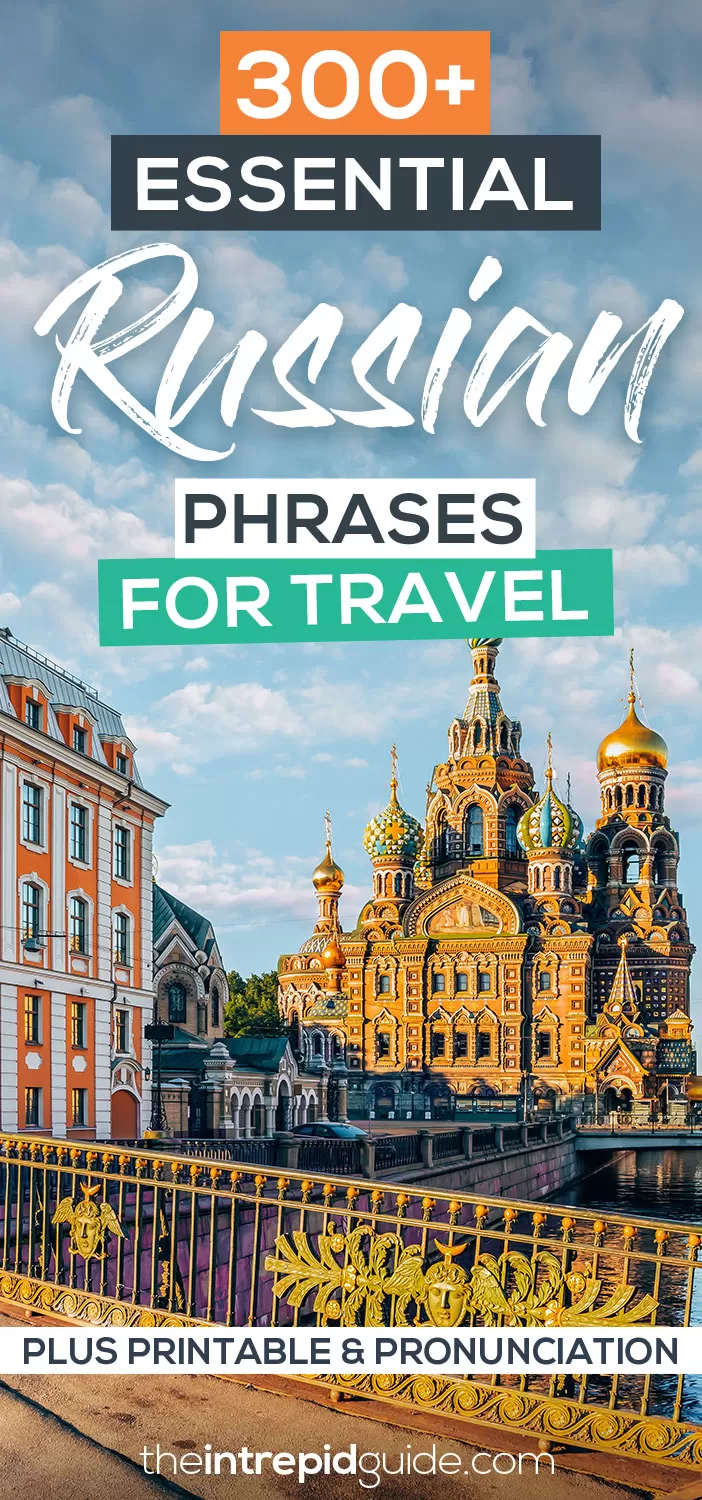
Over to you!
Which of these Russian phrases did you find the most useful? Let me know in the comments section below or join me on social media to start a conversation.
Thanks for reading and I hope you enjoyed this post.
Like what you see? Subscribe using the form below to have all of my posts delivered directly to your email.

